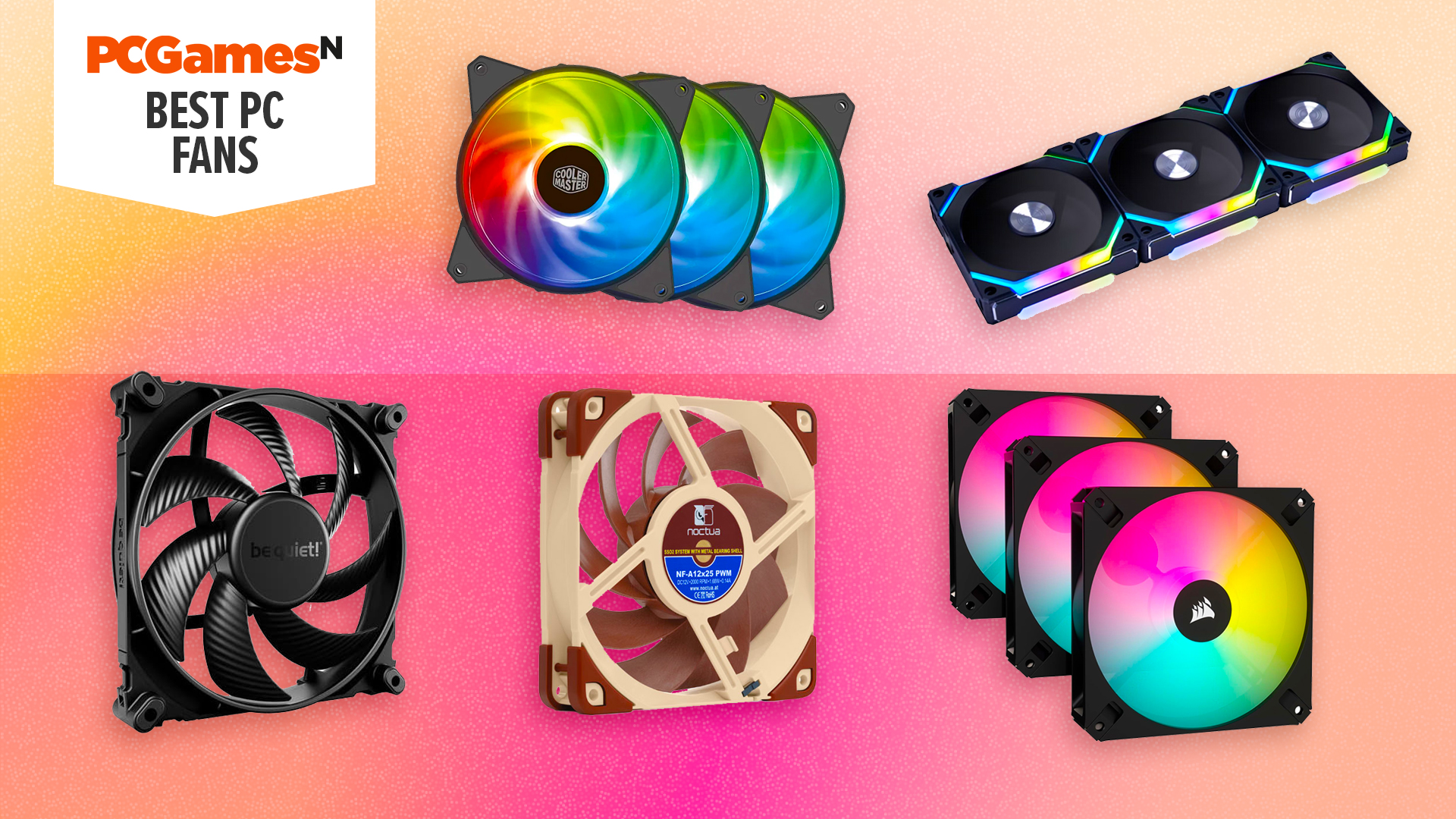
Getting the best PC fans might be the last thing on your mind after sinking hundreds or even thousands into your setup, but don’t underestimate how important it is to keep your gaming PC cool. If even a single component overheats, it throws the whole rig into disarray and can result in a janky frame rate or even a system-wide shutdown.
You can’t just chuck any old blowers in your case, either, as even the best gaming PC falters without the right PC fans in all the correct places. It’s difficult to go wrong with premium brands like Noctua, Be Quiet, Cooler Master, or Thermaltake, but you’ll first need to check whether they’ll fit in your PC case, you want the coolest or most silent system possible, and what kind of fans you need as airflow models are different from the static pressure fans you need for the best AIO cooler.
Once you’re sure everything’s compatible, you’ll need to consider the amount of air your case takes in versus how much it exhausts. Ideally, you’ll want either the same amount or more air coming into your case, but we’ll run through everything you need to know throughout this guide. The best PC fans on our list can stop thermal throttling and help boost fps, so that you can play your favorite PC games without a hitch – you don’t want to sleep on this.
Why you can trust our advice ✔ At PCGamesN, our experts spend hours testing hardware and reviewing games and VPNs. We share honest, unbiased opinions to help you buy the best. Find out how we test.
Best PC fans:
How to choose the best PC fan
Struggling to decide which fan is right for you? We have a few pointers for you to consider which should help make the process easier. First of all, we recommend not spending less than $20 (£15) because while there are fans that cost less than that, they are more than likely going to be of dubious quality.
Another important consideration is a fan’s noise level. Every fan on this list has its maximum dBA listed against it. This should help give you an idea of how noisy it will be if you push it to the max, but keep in mind that unless you’re overclocking your PC, you probably won’t have it pushed to the max at all times anyway. Think about the type of games you play and the extent to which they tax your PC and this will help you determine how noisy your fans will be. If you are running a lot of high-end games, then it’d be pertinent to go for a quieter fan (unless you’re not bothered by sound).
If you’re opting to go for a fan that isn’t included on this list, we recommend sticking to the big, trusted brands. Thermaltake, be quiet!, Noctua, and Cooler Master are all pretty safe bets. Going for an unknown increases the risk of you getting a sub-par product.
Some gamers aren’t going to need overly powerful fans, and going for them will just up occupying unnecessary space on your motherboard. If you’ve got a small form factor setup, you’ll need to be especially conscious of the real estate you have available for fans. If you don’t push your device to its limits, it makes sense to go for 120mm fans, rather than larger 140mm models.
The last thing we recommend looking out for is each fan’s RPM. Generally speaking, the higher this is, the better job a fan can do of cooling your PC, but it’s not always true. For example, the materials used to make a fan have a big impact on its cooling capability, and an inferior construct may not cool as well, despite the high RPM. Make sure you’re taking a holistic view of each fan and ensuring you consider all these points when making your decision.
FAQs
What is the best fan configuration for PC?
You want a configuration that’s going to facilitate a steady flow of air. To achieve this, it’s best to have a fan at the front of the case, which is there to draw in fresh air, and another at the back, which is there to blow warm air out.
Do you have vents on the top of your PC case? If so, the fans that you place there are better used for exhaust. This is because heat rises, so that will be an ideal place for it to release a bit of hot air.
Is too much airflow bad for your PC?
Absolutely not. The greater the airflow, the better. All this means is that every component of gaming PC is well-ventilated, meaning that the risk of overheating is as low as possible.
Should you keep your PC fans at 100%?
This is entirely up to you. Keeping them at 100% is very good for the health of your PC, but it is also when fans are at their loudest. Beyond this, having them constantly running at 100% also means that you might be pushing them harder than is strictly necessary and potentially shortening their lifespan.
Does it matter what type of fan you use?
This is a hugely subjective question because what matters will vary from person to person. Some fans have been designed with aesthetics in mind, and some have not. This will matter to those who want their gaming space to look just right. Some fans will make more noise than others, and this will matter to people who find the sound of fans irritating. Whatever fan you get, be it an airflow or static pressure fan, it will keep your PC cool and that’s the most important thing. Beyond that, it all comes down to personal preference.
What’s the difference between airflow and static pressure fans?
An airflow fan is great for facilitating the flow of fresh air. This is ideal if you have a PC placed in a well-ventilated location and not sandwiched between things, because there is already air available to it.
A static pressure fan is better in cases where there isn’t a lot of airflow available to your PC. If it’s stored in a tight location (or its a small form factor), then a powerful static pressure fan will help keep it cool despite the lack of airflow. It isn’t very good at keeping the airflow going if it does have access to a good supply of fresh air though
Consider your setup when buying a fan, and choose the appropriate type accordingly.
We hope that helps you find the right PC fan. If you want to explore other options, read our guide on the best CPU cooler where we have loads of extra recommendations.
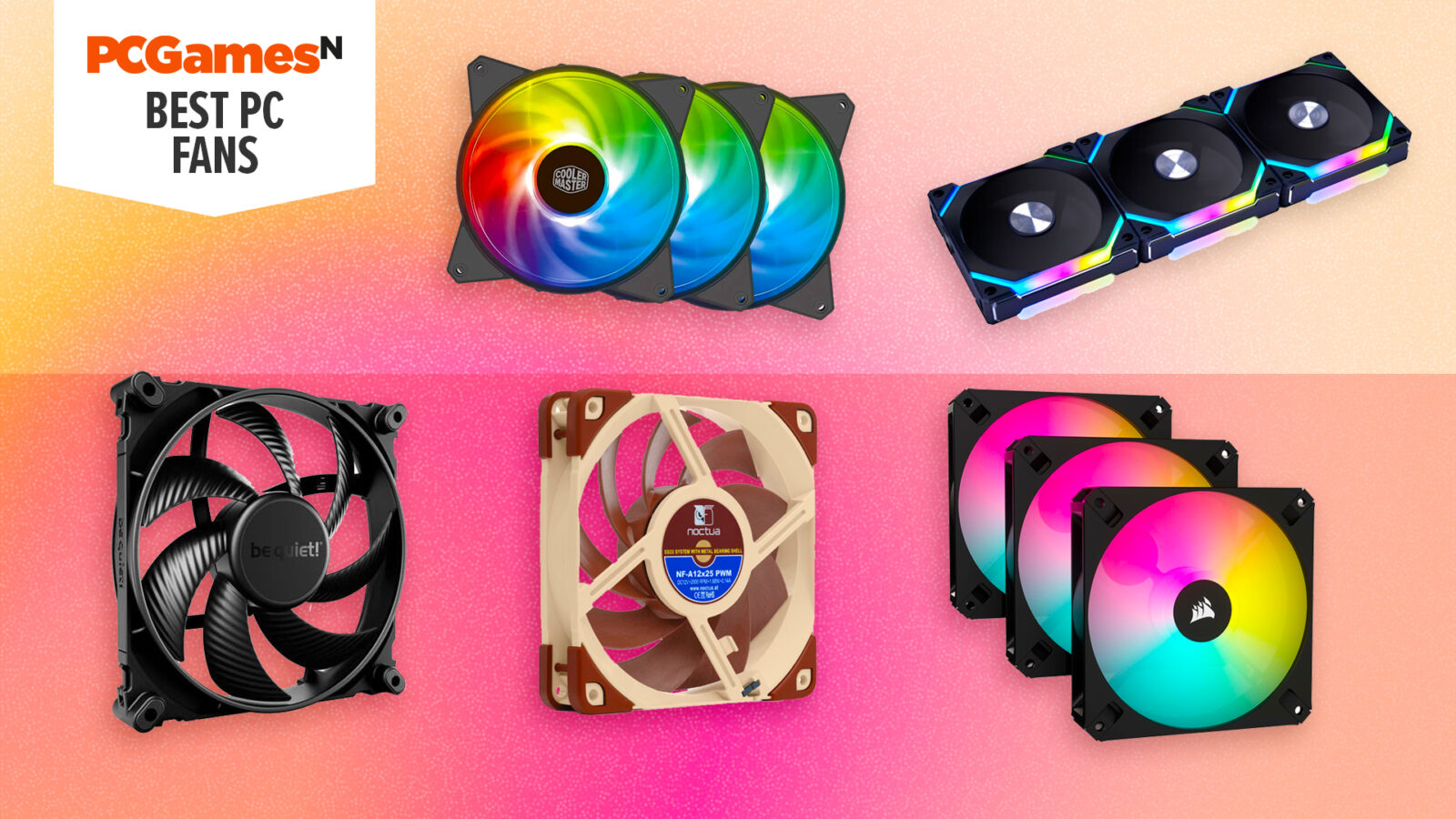
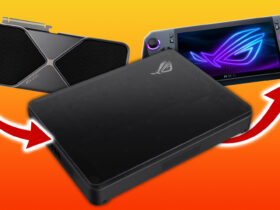





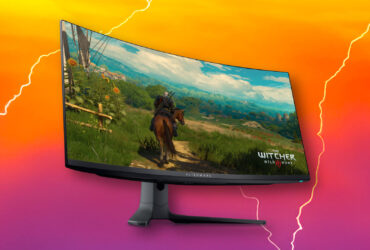
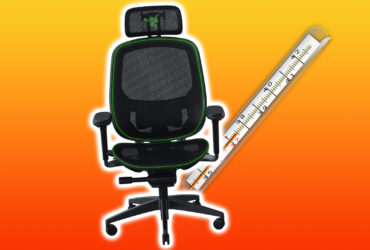
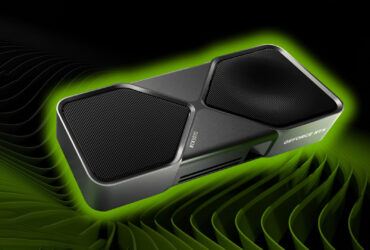

Leave a Reply